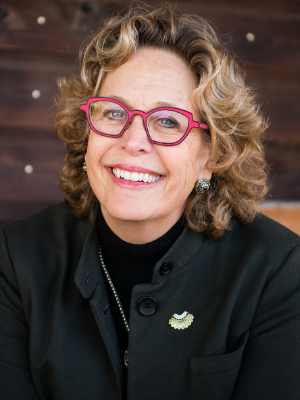 I, for one, don’t want to go back to normal – we have an opportunity this month, during Women’s History Month, to assess the current state of women’s equality around the world and make the appropriate and overdue changes to create a new normal. As I look around today, there is no question that the global pandemic has had a disproportionate effect on women and that the gains made over the past three decades have been all but wiped out in the past 12 months.
I, for one, don’t want to go back to normal – we have an opportunity this month, during Women’s History Month, to assess the current state of women’s equality around the world and make the appropriate and overdue changes to create a new normal. As I look around today, there is no question that the global pandemic has had a disproportionate effect on women and that the gains made over the past three decades have been all but wiped out in the past 12 months.
Women, and especially mothers, are leaving the workforce at unprecedented rates to shoulder most of the childcare and home-schooling responsibilities caused by the pandemic, resulting in unemployment numbers that set us back to the 1980s. But almost more alarming are the “getting back to normal” discussions I hear every day. The normal that so many are talking about nostalgically were not equitable or profitable for women, especially women of color.
Policy matters. Changes being debated on the state and federal level matter. One recent example, in particular, stands out: The Idaho state legislature voted down a bill that would have given the state access to $6 million in funding (approved by the Trump administration) for early childhood education. The opposition to the funding included comments from Idaho Representative Charlie Shepherd (GOP) who stated during the debate, “I don’t think anybody does a better job than mothers in the home, and any bill that makes it easier or more convenient for mothers to come out of the home and let others raise their child, I don’t think that’s a good direction for us to be going.” Mr. Shepherd later apologized for his remarks, but his words still ring heavy and hard. Until state and federal policy makers see, accept, and support the fact that most families have two incomes, and that women desire to live fully realized lives, we are going to continue to fight this shift back to the undesired “normal.”
We are at a historic inflection point. We have an opportunity to create a new normal. Women comprise over 50% of the population and are responsible for 85% of the consumer purchasing decisions. Plus, research has proven time and time again that increased diversity has a direct correlation to increased profitability for businesses.
The way forward is not backwards.
Women working together can seize this opportunity to create new work environments that allow the other half of the population to thrive and flourish. The way forward includes:
- Women supporting women. This doesn’t mean that we always need to agree, but we need to support one another. Purchase from women-owned businesses. Mentor a younger woman colleague. Talk explicitly about barriers and successes so other women don’t think they are alone in this work.
- Dispelling the myth that there is only room for a few women leaders. There is always room to increase the numbers, whether that is in the boardroom or at the table. Bring your own chair if there isn’t one. And always bring a spare chair with you to meetings, in case your colleague forgets hers.
- Be explicit about what you need to be successful in a work environment. For far too long women have kept quiet about what they need and been made to feel singled out and isolated. You are NOT the only one.
- Realize that you have power and even more power with a team. So often women feel that they are powerless based on circumstances outside of their control. Gender equity is a team sport. Build or find your team and work together to achieve your vision. There is power in numbers.
Don’t settle for going back to “NORMAL.” This is a once-in-a-hundred-years opportunity to reset the table. Let’s build on the work that has been done by countless women and men to take a major step forward in cultural evolution.
Kate Isler is the Co-Founder of TheWMarketplace, an economic engine for women, as well as the Co-Founder of Be Bold Now, a non-profit focused on accelerating gender parity. With over 20 years of international executive leadership experience gained working for Fortune 100 companies, Kate’s journey of leadership, challenging the status quo, overcoming adversity and breaking gender stereotypes motivates and inspires. She shares her incredible story and insights in her memoir, Breaking Borders (HarperCollins Leadership), available everywhere books are sold.
